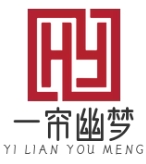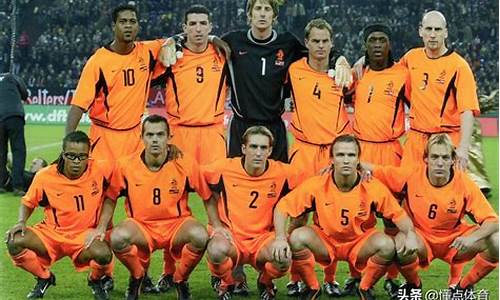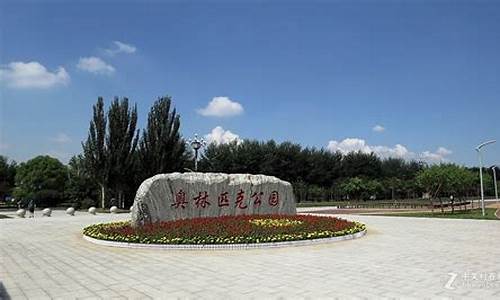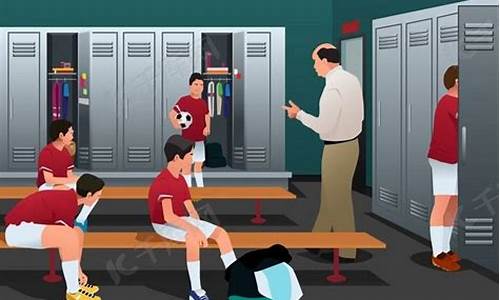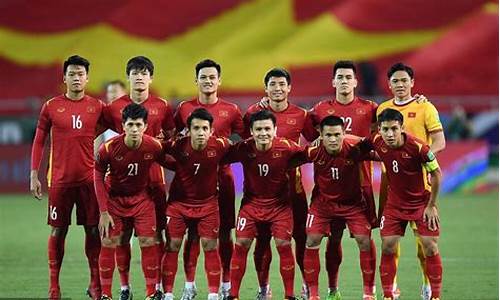奥运会开幕式解说词是现场说的吗,奥运会开幕式解说
1.北京冬奥会开幕式解说是谁?
2.麻烦能给我发一份伦敦奥运会开幕式的BBC版英文解说词么,谢谢啦~~~~
3.奥运会开幕式上解说为什么用法语?
4.奥运会开幕式时董卿他们的解说词?
5.冬奥会开幕式女解说是谁?
6.冬奥会开幕式几种语言播报?

第二届夏季青年奥林匹克运动会16日晚在中国南京开幕,洋溢着青春活力的开幕式美轮美奂,以下为开幕式各环节的一些有趣数字:
4——汉字、青铜器、青花瓷、丝绸之路作为中国文化独有的元素在开幕式上惊艳亮相。
6——开幕式排练共进行了6个月,排练场地分布在南京9个地点和河南登封塔沟、北京排练场地。
6——最后在体育场内进行火炬传递的6棒火炬手,是林丹、周洋、张继科、唐奕、陈定、陈若琳六位奥运会(含冬奥会和青奥会)冠军。
8——刘翔等8位模范、优秀运动员将奥林匹克会旗交到8名本届青奥会运动员代表手中。
9/240——9位作曲家为开幕式创作了240分钟音乐。
9/3.5——巨型天文望远镜镜身长9米,直径3.5米。
11.8/5.7——巨型天文望远镜展开形成的奥运五环宽11.8米,高5.7米。
17/22——巨型浑天仪展开时的最大尺寸为直径17米,高22米
100——100多个特殊造型面具,均采用国际领先的3D打印技术制作。
204——203个国家和地区的奥委会礼宾旗帜和独立奥林匹克运动员手持国际奥委会会旗入场。
304——开幕式音响系统共使用304只LAX音箱。
1400——开幕式道具共1400件,37种,其中包括41艘郑和下西洋宝船,5个奥运青年巨人和1台追梦人装置。
1600——开幕式焰火燃放数量约1600发,共有40多个花色品种,其中专门开发的安全、低碳、环保、微烟焰火新产品20种。
2500/100——共使用专业电脑灯具2500余台,100%为国产。
4000——开幕式参演人员共4000多人。
4800/58——开幕式服装4800套,58款,其中发光特殊服装16套、现场变色特殊服装800套。
6888——“筑梦之塔”演出高空特技吊挂总人数168人,空中筑梦圆盘吊挂绳索260条,长度6888米。
8000——地面高亮度投影布有效投影面积8000平方米。
北京冬奥会开幕式解说是谁?
开闭幕式知识普及——礼仪知识
奥运会开幕式礼仪方面的事项都必须用三种语言介绍,播报的顺序是法语、英语和主办国语言(如果其官方语言不是英语或者法语)。如果主办国的语言是英语,那么它就放在法语播放之后。所有礼仪方面的事项都必须翻译,不要求全部播报,但是没有播报的内容必须要以字幕的形式在大屏幕上展示。翻译的相关方案(例如哪些内容要播报,哪些内容要加字幕)必须经国际奥委会批准。
麻烦能给我发一份伦敦奥运会开幕式的BBC版英文解说词么,谢谢啦~~~~
北京冬奥会开幕式解说是季小军、宝晓峰、乔东卓、王端端、张善辉、苏毅,电视解说则是沙桐和梁毅苗。
2月4日晚,举世瞩目的北京冬奥会开幕式在国家体育场“鸟巢”隆重举行。现场司仪包括季小军(英文)、宝晓峰(中文)、乔东卓(法文)、王端端(中文备份)、张善辉(法文备份)、苏毅(英文备份),电视解说则是沙桐和梁毅苗。
总台CGTN主持人季小军在2008年奥运会时就承担了现场播报工作。两届奥运会经历,让他对播报工作有着自己的体会:“我们就希望大家都开开心心地看完整个仪式,因为仪式很精彩、很漂亮。如果我们把播报工作完成了,没有人注意到我们的声音,播报完全融合在整个仪式里面,这可能是我们最大的成功。如果一旦被人注意到,可能就是过程中有瑕疵。”
2022年北京冬奥会开幕式解说词
沙桐:中央广播电视总台。
梁毅苗:中央广播电视总台。
沙桐:这里是国家体育场鸟巢--北京冬奥会开幕式的现场。现在场内正在进行的是仪式前表演,这是一场别开生面的行进式广场舞。
梁毅苗:参加本场演出的有来自北京、石家庄、张家口三个城市的1365名普通群众。
沙桐:所有演员当中年龄最小的只有5岁,年龄最大的74岁。是仪式前表演中人数最多,年龄跨度最大的一个环节。
梁毅苗:他们都来自非专业团体,今天他们将用最真诚最饱满的热情共同庆祝北京2022年冬奥会开幕。
沙桐:东风随春归,发我枝上花。今天大年初四,正值立春,来自全世界的朋友如约而至,仪式前表演以一种中国人独有的方式展现海纳百川,载歌载舞的大美中国。
沙桐:伴随着《茉莉花》的乐曲万家灯火点亮了城市夜空,盏盏灯火照亮了一个又一个幸福和睦的家庭,在新春的夜晚期盼着家人和朋友的到来。灯火里的中国温馨和谐,流光溢彩;新时代的中国长歌豪迈,生机勃勃。
奥运会开幕式上解说为什么用法语?
BBC直播北京奥运会开幕式解说词
Sue Barker: Good afternoon. In case you are wondering that how important the Olympic Games are and that what it means to the athletes then those three “wise men” should know since they have been to twelve Olympic Games between them. So let’s say we are here in Beijing and we are now in this magnificent ninety-one thousand seats stadium. It’s the national stadium; it’s affectionately known as “the Bird’s Nest”. We are preparing for what is promised to be, a truly spectacular opening ceremony. It won’t start though until 8 o’clock as promised, 8 o’clock local time on the 8th day of the 8th month, 2008. So you won’t miss a thing.
But now for many years have sport and politics had such an uneasy unbalance. There has been political conflict; there have been international protest and environmental fears. As well, there has been so much debate since the People’s Republic of China and Beijing were awarded the games back in 2001. Huw, the world is watching China around Beijing, can you put these games into political contexts for us please?
Huw Edwards: Well, Sue, this is quite something. This is basically China saying to the world: we arrived; we are a 21st-century super power; we can do the best Olympics ever. They spent 40 billion dollars on these games. Nothing can go wrong as far as they are concerned.
Sue Barker: Carrie, Can you tell us what the Games means to people in China?
Carrie Gracie: Well, as far as I can see, people here are really not exposed to the negative messages we have been talking about: the protest, the environment worries, the heavy-handed security. Most people are proud. They are ready to party after seven years of getting ready.
Sue Barker: There are other issues involved here, Michael. For example, President Bush is here for the Opening Ceremony tonight. For the first time the American president is on the foreign soil for opening ceremony. What has been the reaction to that back home in the United States?
Michael Johnson (4-time Olympic champion (1992-2000)): I don’t think many people are really so surprised that he decided to come here, and I think his decision is less political. I think he probably made the personal decision that he wanted to take advantage of the opportunity to come here, to see this and to be a part of the ceremony, regardless of anyone thinks back at home.
Huw Edwards: This is how the Games of the 29th Olympiad are beginning. 2008 drummers are beating the count-down in a way that has never been before. The drummers themselves are producing remarkable electrifying effect.
Sue Barker: These are the full drums calling up the ancestor 4000 years old, 2008 of them.
Huw Edwards: They are waiting for the signal, for the final count-down that Beijing has been waiting for seven years. A minute to go.
Huw Edwards: The Bird’s Nest stadium is filled by energy of these drummers with the very precise message carried.
Sue Barker: Yes. The message is from Confucius saying two and half thousand years old. “Friends come from the far. How happy we are!”
Huw Edwards: This is the bird’s-eye view across the centre of Beijing. The fireworks are creating burning footprints all the way from the Tian’anmen Square, up the central axis, to the Olympic Green and the neo National Stadium.
Sue Barker: So much resonance to the imperial China here. The Confucius, who of course was taboo during the years of the revolution, now is back in style. So are these imperial accesses right through the Forbidden City, and all the identifying marks of five thousand years of the united imperial history.
Huw Edwards: There will be twenty thousand fireworks used for doing this opening ceremony, and the dust creates the Olympic rings. Five rings represent the five continents, the symbol of Olympic unity, unity of mankind in sport.
Sue Barker: You can see the performers suspended, floating through the air and coming down from the huge wires attached to the roof of this stadium. What is worth mentioning is this is a kind of 21st-century take-on of Buddhist figures you find on the walls of caves of Dunhuang. This is the reference to China’s huge northwestern Tang Dynasty spread of the Silk Road.
Huw Edwards: The rings, which are magically made of dust, now somehow raise in this stadium, indicating the arrival of the Olympics in China.
Carrie Gracie: The genius behind this very original opening ceremony, Zhang Yimou, is very much back in now. In a way, he is the story of contemporary China. He told us the other day that he wanted this ceremony to say to the world: romance, family.
Huw Edwards: What he also says is that China is very proud of its 5000 years of civilization. It is not afraid to modernize.
(After the raising of Chinese national flag)
Another spectacular display of fireworks, not just over the Olympic Stadium but over the city. The red flag flutters inside the national stadium. Is the red flag saying something about Chinese history as well, Carrie?
Carrie Gracie: Well, yes, because that’s about what all we are going to say about Chinese Communism in this opening ceremony. The five stars on the flag signify the unity of the country and the leadership of Chinese Communist Party. But we are going to say about a lot more of this kind of images, the traditional, the calligraphy, the culture, the sophistication of ancient China.
Huw Edwards: Indeed. What’s now going to happen is that we are going to enjoy different phases of Chinese history, different aspects of Chinese culture, some of them quieter, some of them on a very big scale.
Very clever is the way they led us from the little film introducing the theme of the scroll to this actual scroll, which is on the floor of this arena. It measures at least 25 meters in width and the length covers the entire length of the arena itself, so believe me, it is big. And this would be the canvas on which lot of tableaus will be painted.
Carrie Gracie: We are going to say that the wash painting developed in China during the Tang Dynasty. To begin, artist puts a few drops of water on ink stone, grinds the ink in circular motion, and then paints with a brush made of wolf hair or horse hair.
Huw Edwards: While the painting goes on, the stream of cultural icons of Chinese historical progress flows on the painting scroll itself. Very cleverly done.
Carrie Gracie: This is the Guchin, the ancient seven-stringed instrument we hear at the same time. We are going to see many of Chinese instruments during the course of this opening ceremony, and this is one of the most harmonious to Chinese ear. And the whole theme of this ceremony is harmony.
Huw Edwards: The Guchin, as Chinese say, has a history of three thousand years, and they claim it is the oldest pluck instrument in the world. I’m sure there will be other views on that, but this is the claim being made.
Carrie Gracie: These are ‘the three thousand disciples’ of Confucius, whether he really had three thousand, no matter, but certainly he does in this performance. What they chant is “All those within four seas can be considered as brothers” from The Analects, Confucius’s most famous work.
Huw Edwards: They are holding bamboo slips, a kind of books with scripts carved on the stringed bamboo slices. Again, the energy created by these men inside this stadium is remarkable.
The three thousand disciples of Confucius are celebrating learning, celebrating Chinese philosophy, and that learning of course takes the forms of books and paper, and of what we are going to see – the printed words.
Carrie Gracie: Confucius had the habit of speaking truth to the power when in and out of favor. – Here we have the example of the first movable type system, which was created here in China, out of ceramic blocks, around 1041 A.D. It was in 1450s for Europe to introduce what generally regarded as the independent invention of moveable type, and that was created by Germany’s Johannes Gutenberg.
We see here the evolution of one character, one special character which holds the clues to everything else this evening. This character is “he”, and it means harmony.
Moveable type began in the Sui Dynasty in the sixth century. Bi Sheng, in the Song Dynasty, improved the matter by making clay types and print. Every Chinese school child is told that the movable type is one of the greatest inventions of ancient Chinese civilization, along with the gun powder, the paper, and the compass. There is the modern character “he”, the one that you will see written in China today.
Huw Edwards: Peach blossoms, romantic and enjoyable, demonstrating the sweetness, peace and love in Chinese people.
奥运会开幕式时董卿他们的解说词?
《奥林匹克宪章》中明白无误地谈到了法语的地位。其中第24条规定“国际奥林匹克委员会的两种官方语言是法语和英语”,又补充规定“如出现歧义,以法语为准”。因此,自现代奥林匹克之始,其创始人就将这两种主要国际语言置于平等地位上。这一决定对于奥林匹克的作用有着重大意义,它推动了不同民族之间的开放与对话,并确保了语言和文化的多样性。 而且,奥运会的创始人顾拜旦是法国人,也是为了纪念他
冬奥会开幕式女解说是谁?
亲爱的朋友,当您被北京奥运会开幕式一幕幕精彩绝纶的场面所吸引时,当您沉浸其中,充满幸福与感动时,您是否留意在这流光溢彩、鼓声震天、歌声悠扬的背后,现场播音员用那磁性的嗓音和无限激情,为我们解读眼前这生动的画面?他们抑扬顿挫、充满激情的描述,和着灵动美丽的文字,丰富了我们的视觉,涌动了我们心底的情潮!我,情不自禁利用开幕式后18个小时的间隙,将这美好加以整理,存放在此,以飨我的教博弟妹。
冬奥会开幕式几种语言播报?
陈滢。女,现为中央电视台体育频道主持人,评论员。曾主持节目《中华龙舟大赛》,解说评论项目包括花样滑冰、体操、艺术体操等。
曾赴美国、英国、德国、法国、瑞典、荷兰、意大利、比利时、俄罗斯、加拿大、日本、韩国现场直播花滑和体操世锦赛。奥运报道经历:都灵冬奥会,北京奥运会,温哥华冬奥会,伦敦奥运会, 索契冬奥会,里约奥运会、北京冬奥会等。
2022年冬季奥运会三种语言解说分别是法语、英语和汉语,奥运会开幕播报的顺序是法语、英语和主办国语言。
北京2022年冬奥申委官方网站正式开通,这也是北京联合张家口申办冬奥会的一项重要工作,冬奥申委官网提供中、英、法三种语言的内容,设8个栏目。
于中国来说,冬奥会将是一次展示大国形象的外交良机,由于冬奥会是巴赫上任国际奥委会主席后的第一次大赛,中国积极参加无疑将为2022年冬奥会增加更大的分量,举办奥运会是和平时代一个国家屹立于世界强国之林的重要象征和标志。
冬奥法语第一的由来
这是因为法国成为了复兴现代奥林匹克运动会的中心,并且成功召开了第一次冬奥会,同时,为了纪念法国人,现代奥林匹克之父顾拜旦,就将法语作为奥运会第一语言写入奥林匹克宪章,也就作为排序第一的广播语言。而且不仅仅是北京这届冬奥会的第一语言是法语,而是每一届冬奥会都是将法语作为第一语言。
奥运会小知识
1、奥运会全称奥林匹克运动会,是由国际奥委会主办的世界性综合性运动会。它因起源于希腊雅典而得名。
2、1894年,在巴黎举行的国际体育大会上,根据顾拜旦的倡议,奥运会得以恢复。第一届现代奥运会于1896年在雅典举行,然后在世界各地轮流举行,每届为期16天。
3、《奥林匹克宪章》规定,奥林匹克标志、奥林匹克旗帜、奥林匹克格言、奥林匹克会歌的产权属于国际奥委会的专有权利。
4、奥运五环的颜色从左到右依次为蓝色、黑色、红色、**和绿色。
冬奥会开幕式3种语言播报。
2022年冬奥会介绍语言分别为法语,英语,汉语。
北京冬奥会开幕式上面的法语解说有乔东卓和张善辉,乔东卓为法语解说,张善辉为法语备份。冬奥会的法语播报员有:孙爱,郑瑶,苏颖莹,邹文瞻等,2022年的冬季奥运会的三种语言解说分别是法语,英语和汉语,奥运会开幕式的播报顺序则是法语、英语,还有主办方语言。
奥运会的第一官方语言:
法语作为奥运会的第一官方语言,要追溯到19世纪末1894年,一个名叫皮埃尔.德.顾拜旦的法国人发起成立了国际奥林匹克委员会,首次的秘书长也是由他担任,此后,还担任了奥林匹克委员会的主席,并且参与了奥林匹克的会徽、会旗、举办方式运作形式的设计,还有最初的规章制度的文件也有他的参与。
1934年他去世后,遗体安葬在奥林匹克总部洛桑,心脏单独安葬在奥林匹克的发源地奥林匹亚。所以为了纪念这位体育教育家,以后的奥运会的开场,法语作为官方语言排在第一位。并且,如果奥林匹克各种文件中出现了歧义,除非有特殊规定,一切都以法语为准。这就是法语作为第一语言的原因,也体现了奥运精神的传承。
声明:本站所有文章资源内容,如无特殊说明或标注,均为采集网络资源。如若本站内容侵犯了原著者的合法权益,可联系本站删除。
